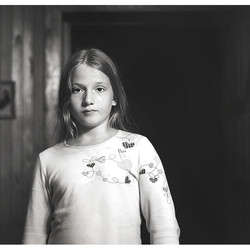Children’s fears: the causes of their appearance and methods of dealing with them.
 Almost all children are afraid of something. Some fears appear closer to school age, while others already in the year are seriously afraid of something. Of course, all parents are worried about this, and most of them rush with the child to a specialist, considering it to be a serious deviation. However, not everything is as scary as it may seem at first glance.
Almost all children are afraid of something. Some fears appear closer to school age, while others already in the year are seriously afraid of something. Of course, all parents are worried about this, and most of them rush with the child to a specialist, considering it to be a serious deviation. However, not everything is as scary as it may seem at first glance.
It is quite possible to overcome children’s fears at home, without resorting to the help of psychologists. But in order to do this, you must first find the cause of fear.
Types of children’s fears
All children have different fears, but they are directly related to the child’s age. For example, newborn babies are afraid of loud sounds, and schoolchildren are afraid of poor grades.
The most common children’s fears include the following:
• Fear of losing mom or dad;
• Fear of the dark;
• Fear of losing, for example, in a shopping center;
• Fear of being alone in an apartment;
• Fear of heights;
• Fear of doctors and pain;
• Fear of punishment;
• Fear of fictional characters or cartoon characters.
Causes of childhood fears
Strange as it may sound, but very often the parents and their carelessness are responsible for the appearance of fear in children. Many may decide that this is simply impossible, since all parents want only the best for their little ones and in every possible way protect them from various troubles. However, this is often the problem.
Usually, parents tell their baby, who does not want to sleep, that if he doesn’t close his eyes now, a “babayka” will come out from under the bed and take him to his place. Hence, the baby and there is a fear of remaining in the dark without adults. Yes, and having matured, the child is unlikely to want to stay at home alone for the same reason.
If, while walking on the playground, parents often tell a kid climbing high on a ladder that he will fall, then soon he will be afraid of heights.
The fear of losing a mom or dad arises if the parents periodically leave the child with strangers, for example, their friends or neighbors, without explaining the reason, and go away in an unknown direction.
If a child is often scolded for bad deeds, then sooner or later he will be afraid of your punishments and curl up every time you wave your hand.
The fact that children are afraid of cartoon characters are also to blame for their parents, since they allow the kid to watch these “horror stories”.
Perhaps the only thing the parents are not guilty of is the fact that the child is afraid of doctors. This fear appears in children after a man in a white coat for the first time hurts him, for example, takes blood from a finger or looks at his throat.
How to overcome children’s fears?
It is possible to help a child get rid of his own fears, but for this you will need time, patience and a little effort. So what to do?
• Mom and Dad – the most expensive thing a baby has. Therefore, in no case should one leave him in crowded places, for example, in a shopping center. You can leave the child only to the distance at which he can see you. In addition, if you leave a small child with a grandmother, nanny or kindergarten teacher, before leaving, explain to the child where and why you are leaving and promise to return for it.
• Do not invent such characters as “babayka” and do not frighten them, even the most disobedient child.
• Show your child only good cartoons that can teach him to be friends with peers, help loved ones, etc. After watching such cartoons, the baby will become kinder and more friendly, and certainly will not be afraid of evil fairy-tale characters.
• If the child climbed to a higher altitude during the game, just tell him to be a little more careful, and stand by yourself and be ready to help him down.
• If the child is afraid of dark rooms, turn on a nightlight or desk lamp in the evening. In no case do not force the baby to sit in a dark room until he is no longer afraid. So you only inflict a serious psychological trauma on a child that you can hardly cope with without the help of specialists.
• Punish a child only for really bad actions that can harm him or others, and not for ordinary mischief. At the same time do not hit the child, even slightly. For punishment there are more effective methods, for example, depriving of sweets for a while or watching cartoons.
• Before another visit to the hospital, explain to the child the purpose of this visit. This will help you avoid unnecessary tears. But remember that it is impossible to lie to a child, otherwise he will simply cease to trust you. Therefore, if you go to donate blood, tell your child honestly that at first it will be a little painful, but soon everything will pass.



